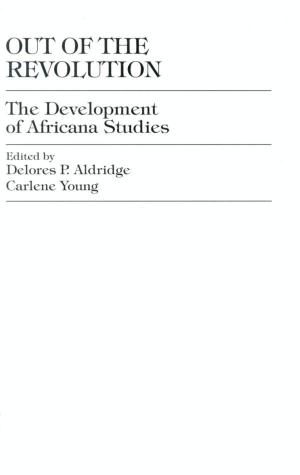Foucault and Family Relations
Governing from a Distance in Australia
Nonfiction, History, Australia & Oceania, Social & Cultural Studies, Political Science, Politics, Law Enforcement, Americas, United States, 19th Century| Author: | Malcolm Voyce | ISBN: | 9781498559706 |
| Publisher: | Lexington Books | Publication: | May 14, 2019 |
| Imprint: | Lexington Books | Language: | English |
| Author: | Malcolm Voyce |
| ISBN: | 9781498559706 |
| Publisher: | Lexington Books |
| Publication: | May 14, 2019 |
| Imprint: | Lexington Books |
| Language: | English |
Foucault and Family Relations: Governing from a Distance in Australia analyzes how notions of property ownership were instrumental in maintaining family stability and continuity in rural Australia, outlining how inheritance and divorce laws functioned to govern the internal relationships of families to assist the state to ‘rule from a distance’. Using a selection of Foucault’s ideas on the “family”, sexuality, race, space and economics this books shows how “property” operated as a disciplinary device, which was underpinned by “technical ideas”, such as surveying and cartography. This book uses legal judgments as a form of ethnography to show how property, as a socio-technical device, allowed a degree of local freedom for owners. This aspect of property allowed the state to stimulate ideas of local freedom to assist in “ruling from a distance,” demonstrating how the rural family as a domestic unit became a key field of intervention for the state as the family represented a bridge to larger relationships of power.
Foucault and Family Relations: Governing from a Distance in Australia analyzes how notions of property ownership were instrumental in maintaining family stability and continuity in rural Australia, outlining how inheritance and divorce laws functioned to govern the internal relationships of families to assist the state to ‘rule from a distance’. Using a selection of Foucault’s ideas on the “family”, sexuality, race, space and economics this books shows how “property” operated as a disciplinary device, which was underpinned by “technical ideas”, such as surveying and cartography. This book uses legal judgments as a form of ethnography to show how property, as a socio-technical device, allowed a degree of local freedom for owners. This aspect of property allowed the state to stimulate ideas of local freedom to assist in “ruling from a distance,” demonstrating how the rural family as a domestic unit became a key field of intervention for the state as the family represented a bridge to larger relationships of power.















